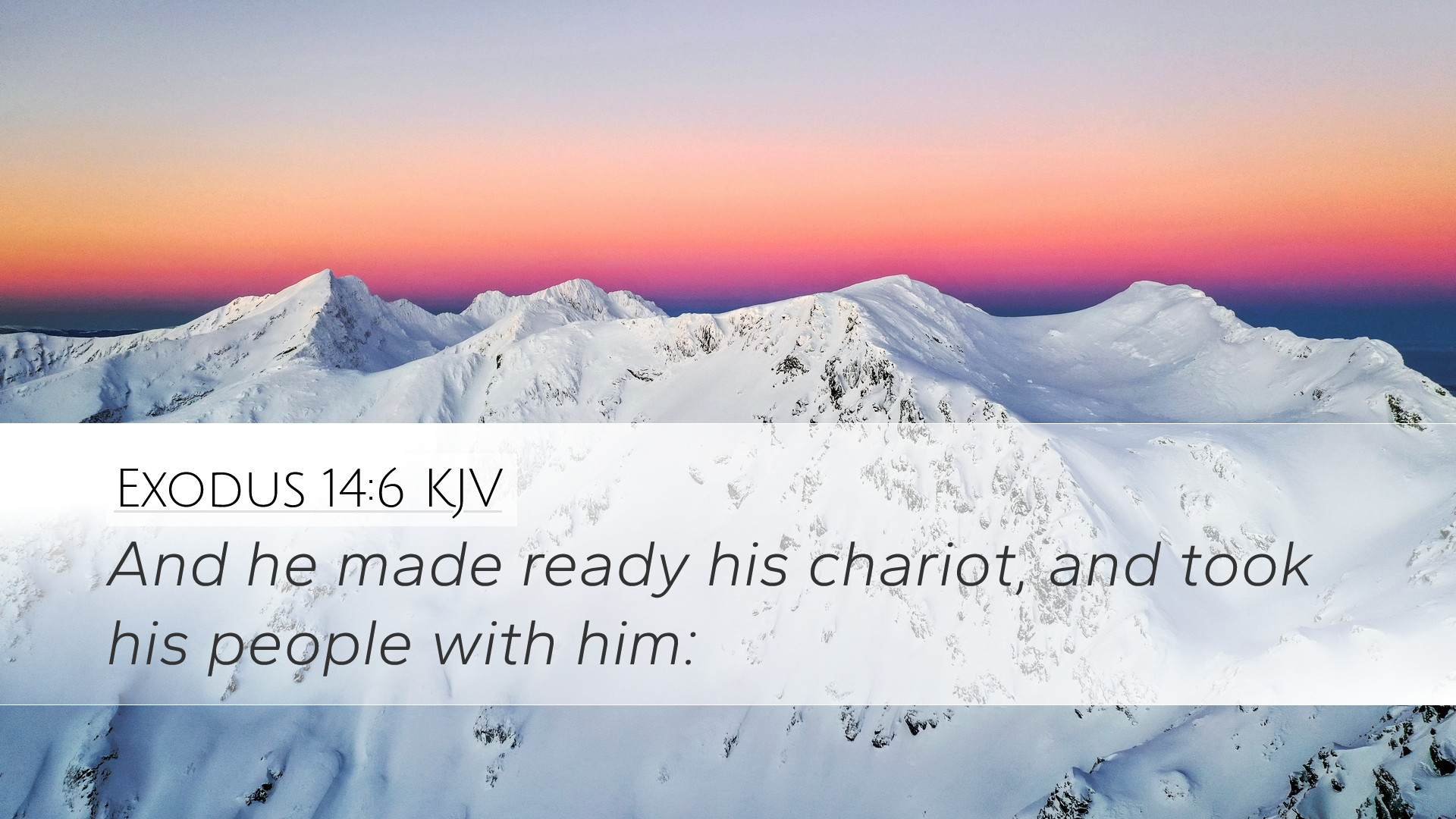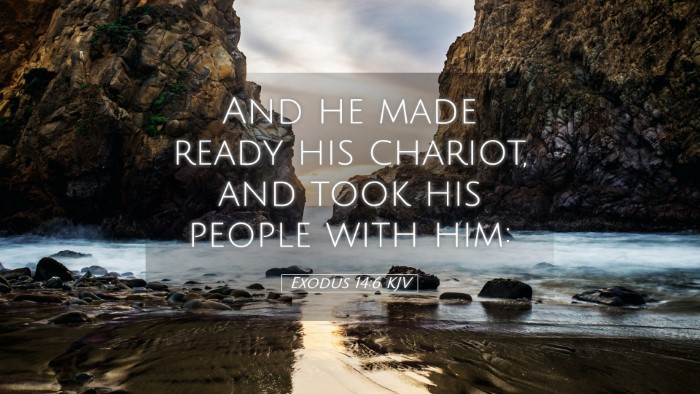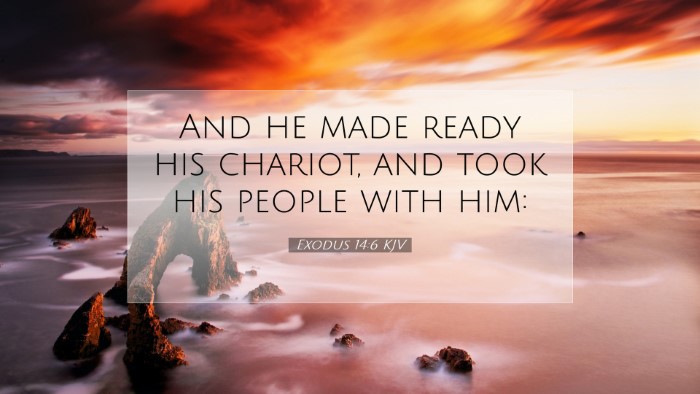Commentary on Exodus 14:6
Verse Context
Exodus 14:6 states, "So he made ready his chariot and took his people with him." This verse occurs within the larger narrative of Israel's exodus from Egypt, focusing on Pharaoh's determination to pursue the Israelites after their liberation.
Analysis of Pharaoh's Actions
In this verse, we see a pivotal moment where Pharaoh, in a fit of rage and stubbornness, prepares his chariots to chase after the Israelites. This action reflects several theological and moral issues that serve as profound lessons for leaders and followers alike.
The Determination of Evil
Matthew Henry's Commentary emphasizes that Pharaoh's decision to pursue the Israelites was fueled by his obstinate heart. Despite witnessing the plagues and the undeniable power of God, his pride and desire for vengeance propelled him to action.
Henry notes that this determination is characteristic of evil leadership, which often persists in opposition to the divine mandate. Such leaders may recognize truth but choose to suppress it for personal gain or national pride.
Divine Providence and Human Rebellion
Albert Barnes' Notes highlight that the pursuit of Pharaoh is not only a demonstration of human rebellion but also serves to exemplify God's sovereignty. Barnes explains that God hardened Pharaoh's heart, which was a fulfillment of God’s plan for the eventual demonstration of His power through the destruction of the Egyptian army.
This narrative indicates that God's purposes often unfold through human actions that seem contrary to reason. Barnes concludes that this interplay provides a profound reflection on how God uses even the most obstinate hearts for His glory.
Practical Lessons for Leaders
Adam Clarke's Commentary offers insights into the responsibilities of leadership. He notes that leaders must be mindful of their impulses. Pharaoh, driven by anger and pride, exemplifies the dangers of leadership devoid of humility and wisdom.
- Careful Decision-Making: Leaders should seek divine guidance to avoid making rash decisions that could lead to adverse outcomes.
- Understanding Consequences: Leaders must be aware of the implications of their actions, not only for themselves but for their followers and their nation.
- Humility Before God: True leadership necessitates a humility that recognizes the need for divine wisdom and insight.
Theological Significance
Theologically, Exodus 14:6 encapsulates the struggle between divine sovereignty and human agency. It raises poignant questions for theologians regarding the extent of free will against the backdrop of God's ultimate plans.
Human Agency and Divine Will
Matthew Henry reiterates that while God has a sovereign plan, He allows human agency to act in ways that may contradict His will. This reflects both the dignity and the depravity of humanity. Pharaoh’s relentless pursuit serves to reveal the depths of human sinfulness, yet it also demonstrates God’s control over history and events.
Preparing for Deliverance
Within the larger narrative of Exodus, the pursuit by Pharaoh acts as a prelude to the miraculous deliverance of Israel through the Red Sea. Albert Barnes reflects that sometimes God permits trials to reach their fullest extent before delivering His people, showcasing His power in a way that leaves no room for doubt. This moment builds anticipation for the imminent act of redemption.
Conclusion
In conclusion, Exodus 14:6 serves as a rich text for exploration regarding leadership, accountability, and divine sovereignty. The verse invites pastors, students, and scholars to delve deeper into the themes of repentance, the consequences of pride, and the nature of God’s providence in human history.
As one reflects on this passage, it becomes increasingly clear that while leaders like Pharaoh may act against God’s intentions, it is through their actions that God’s purposes are ultimately fulfilled. Through the lens of history, believers are encouraged to trust in God’s ultimate plan for redemption and justice.


